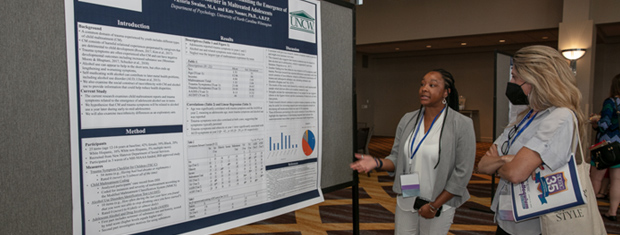




The APSAC Advisor is a peer reviewed quarterly news journal for professionals in the field of child abuse and neglect.
The APSAC Advisor provides succinct, data-based, practice-oriented articles that keep interdisciplinary professionals
informed of the latest developments in policy and practice the field of child maltreatment. It is designed to highlight
best practices in the field and publish original articles and current information about child maltreatment for professionals
from a variety of backgrounds including medicine, law, law enforcement, social work, child protective services, psychology,
public health and prevention in the U.S.
 If you wish to learn more about submitting an article to the Advisor, please click here.
If you wish to learn more about submitting an article to the Advisor, please click here.
This library contains Advisor issues dating back to the first issue in 1988. The most recent issue appears at the top.
Scroll down to select past issues by year and issue number. Once a publication appears in the box, you
can use the Enlarge button to open the document in a new window or tab (depending on how your browser is set up).
This will allow you to view the document with larger print.
To print a document, first use the Enlarge button to open the document in a new window or tab. Then use your browser's Print command.
To return here from a new tab, close the tab. To return from a new window, click your browser's Back button.
In the listing below, click on a year and issue number to see the articles in that publication.
2020 Number 1
Intrafamilial Child Torture: Training Mandated Reporters
Intrafamilial child torture (ICT) is an emerging category of child maltreatment coming to the widespread attention of child-serving professionals for the first time. This article will familiarize readers with ICT as a separate category of maltreatment, demonstrate the need for ICT to be expressly included in mandated reporter laws, and describe early efforts to train mandated reporters on ICT. The article will briefly describe the types of harm involved in ICT and the highly pathological family dynamics that lead to parents torturing their own children. The need for separate mandated reporter laws will be demonstrated by discussing ICT’s rarity, lethality, psychologically devastating consequences, and tendency to be missed or misbelieved. Finally, Miller’s beginner-level training on ICT will be described.
Advancing Trauma-Informed Programs in Schools to Promote Resilience and Child Well-Being
This article discusses the importance of trauma-informed schools and the goal of transforming education systems to become more attuned and responsive to the needs of children with trauma histories. We draw on findings of an earlier review of published studies in which we highlight current gaps in the literature and call for more empirical work to better establish the promise of systems-oriented, trauma-informed strategies. In the current article, we also highlight core components of these strategies and offer a number of recommendations for schools committed to ensuring that risk-exposed and traumatized children receive the supports and services they require to succeed in school, work, and life.
Introduction Parental Alienation: A Contested Concept
Seeking a Bridge Between Child Sexual Abuse and Parental Alienation Experts
APSAC Advisor 32(1): Full Issue